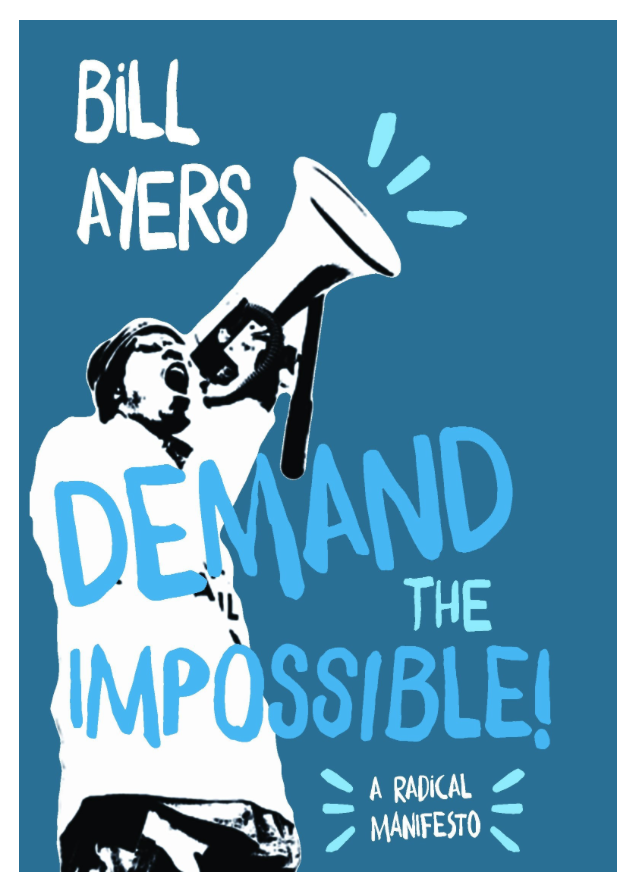Review: “Demand the Impossible”
October 11, 2016
A revolution is imminent! A new resurgence of progressive ideologies that challenges the conventional way of thought is gaining momentum.
“Demand the Impossible: A Radical Manifesto”author Bill Ayers spoke about revolution and much more at his book launch last month at Experimental Station, a community center in Hyde Park. At the event, he also confessed to the audience his one qualm with the Green Party is that: they only show for national elections.
“Why do we always have to aim for the White House,” Ayers said. “We have the opportunity to make immediate changes at a community level every day.”
Ayers also said that, “if you are not pissed off then you are not paying attention.” His anti-capitalist stance couldn’t be more in your face. “What went wrong? The short answer, capitalism,” he said.
In his book, he urges the reader to imagine a better future: not as the dream of an idealist, but as something tangible and within our grasp. He calls capitalism a system that dehumanizes everyone and terrorizes the planet. “Capitalism demands expansion; its predatory heart is the rage to accumulate. It thrives on growth unleashed and unrestrained, but Earth says otherwise.”
He calls out capitalists throughout the book. He calls the Bill and Melinda Gates Foundation’s mission statement “irritating, as it announces its belief that every child should have a chance to lead a full and productive life–not the right to actually lead that life, but merely a chance at it.”
Ayers shows how demanding the seemingly impossible is realistic. Slavery was a mainstay in American society in the early 1800s, and abolition was seemingly impossible. Desegregation was also once seen as a seemingly impossible dream. If those constructs were once seen as immovable and were brought down, then why can’t that be the case today for capitalism?
He urges the reader to question “common sense” things that have become normalized or mainstream in our world. For example, why is the United States the only industrialized country where it is legal to advertise prescription drugs? “It serves no public health interest whatsoever, but it does indeed serve corporate wealth.”
He follows that up by saying, “If universal health care is a human right, what else might be?”
Ayers believes in the people, and he puts it together eloquently “Every human being is of infinite and incalculable value.” He said the one percent’s greatest fear is our greatest hope: collective consciousness and common struggle.
Ayers also explains a simple solution to the economy and other social constructs:”All the rules of the economy are made up and put in place by people, and they can’t really exist beyond or outside of human culture and politics,” Ayers said. “Anything made by people can be unmade or remade by people.”
Ayers has a brilliant mind and his writing is relatable readers. His arguments are well formulated, but written with poetic flow. His stance is direct, yet elegantly phrased when he says things like, “We need to come together and get smart about the rich and the rest of us. After all, we are many, they are few.”
This is a book that challenges the precedent way of thought and attitude that many may have about today’s system. This book is a must-read for everyone for it’s brutally honest description of today’s society. It contributes to the dialogue of leftist ideology and presents a solution to some social injustices.









